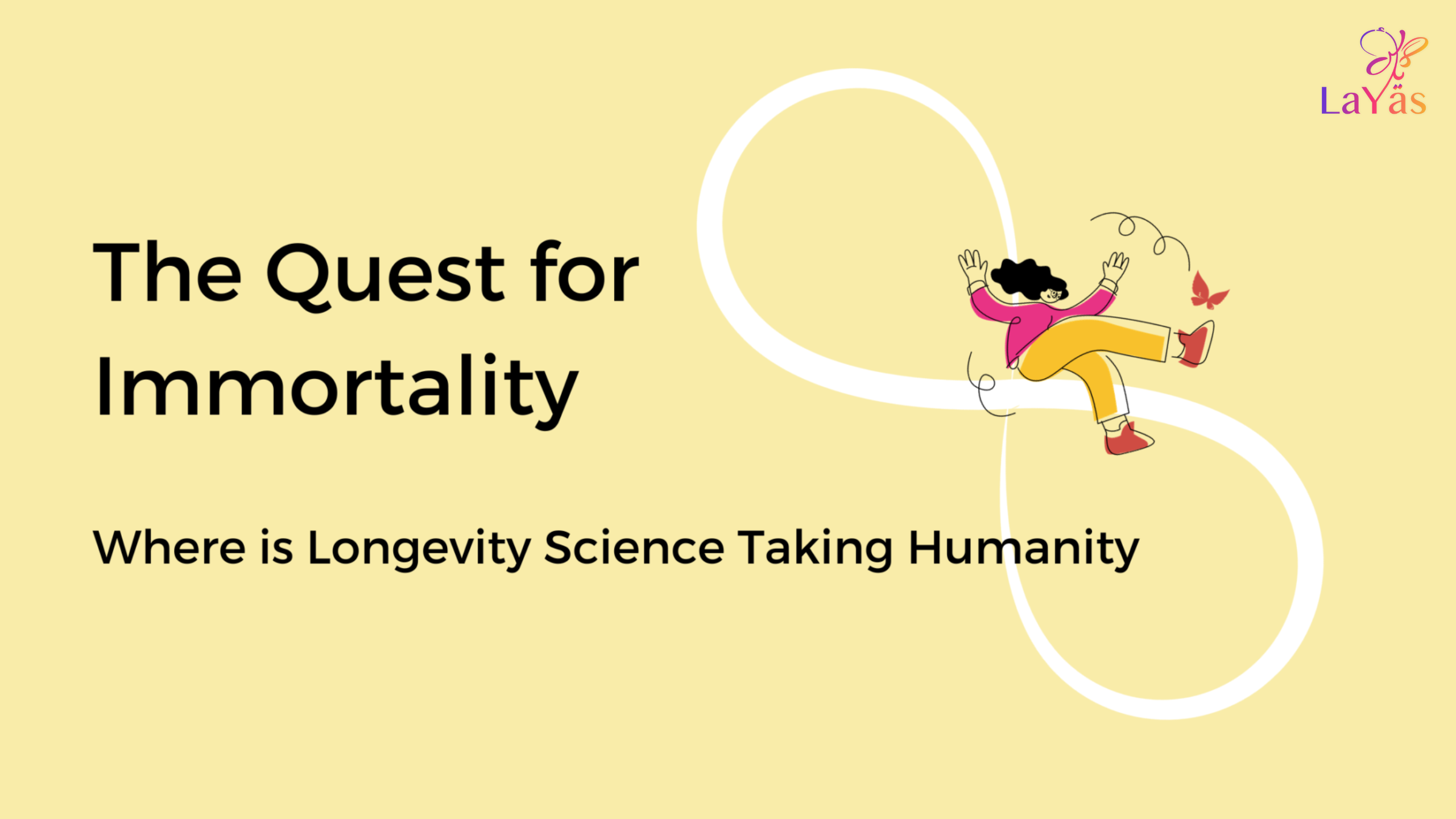The Quest for Immortality


Nasreen Hasan
October 7, 2023
Listen to Our Podcast!
In Jonathan Swift’s classic novel Gulliver’s Travels, the title character meets a group of people called Struldbruggs, who are immortal. When Gulliver hears about this, he envies them because he imagines they are healthy and have all the time in the world to do wonderful things. However, he soon learns that although they do not die, they continue to age. Their bodies and their minds both become weaker, and they lose their autonomy. Instead of envy, the emotion they inspire in Gulliver now is pity.
Imagine being offered immortality, knowing that you would continue to age and decay forever, would you accept? I’m going to guess no.
Now modify that question a bit, and it’s no longer a fictional hypothesis, but a real medical dilemma: If you could live longer, say an extra twenty years, but know that you were going to get sicker, and more feeble, both physically and mentally, would you accept?
Think about that – because you have been given this choice. The advances in modern medicine and technology that has given us these extra years, has added those years to the end of our lives, not the beginning. And that has introduced a whole new set of diseases and problems that were not common or even nonexistent before.
The average life expectancy has risen considerably in the past century. That’s a monumental achievement, and it’s something to be proud of. But if we’re going to enjoy those extra years without falling into ill health, then we need to address diseases that are specific to old age, and find ways to reverse their effects.
The idea of reversing aging may seem like something out of a science fiction movie, but it’s actually a rapidly growing field of research. Scientists are now exploring various approaches to extend human lifespan and improve the quality of life in old age. These include targeting specific genes and pathways involved in the aging process, studying the effects of calorie restriction and intermittent fasting, and developing stem cell therapies to regenerate damaged tissues. There is also a growing interest in the use of artificial intelligence and machine learning to analyze large sets of data on human aging. With these technologies, researchers hope to identify patterns that can help them predict and prevent age-related diseases before they even occur.
Understanding Biological Age and Slowing Down the Aging Clock
Have you ever noticed how some people appear younger than their chronological age, while others seem older? Well, scientists say that our chronological age (how many birthdays we’ve had) doesn’t tell the whole story about our health or how quickly we’re aging. Instead, they use a concept known as “biological age”, which provides a more comprehensive and precise understanding of aging. And here’s the good news: we have the potential to slow down or even turn back these aging clocks through modifiable lifestyle behaviors. Things like following a predominately plant-based diet, getting regular exercise, taking certain supplements, getting good quality sleep, and eating a healthy diet could help slow down biological aging. While the need for more comprehensive studies is emphasized, the possibility of influencing our aging clocks is possible although ageless immortality may still be out of our reach.
So, how do these “aging clocks” work? Basically, they look at things like the length of our telomeres (the protective caps on the ends of our chromosomes that shorten as we age), changes to our epigenome (the chemical tags that control which genes are turned on and off), and overall inflammation levels in our body.
But, can we really slow down, or better yet, reverse our ticking biological clock? With the rapid advancements in science, this age-old question is being revisited and examined more closely, and researchers are exploring how certain lifestyle choices and medications like metformin may impact the aging process. While several factors contributing to accelerated aging have been identified, we need more research to identify interventions that can slow or reverse the biological age.
Ethical Implications of Aging Populations
Beyond the science and biology, the implications of a longer living populations will bring many ethical considerations. An aging population will come with increased economic costs, added stress on healthcare services, and intensified job competition. It could exasperate overpopulation issues and put a greater strain on our natural resources.
Another key question is whether everyone will have equal access to life-extending technologies. Will these advancements widen the gap between the rich and poor, creating a divide between those who are ‘immortal’ and those who will stay merely mortal?
Understanding and managing the aging process may hold the key to better health and longevity. So while we may not have a definitive answer yet, one thing is for sure, human fascination with immortality will continue to fuel our quest to unlock the secrets of aging and push the boundaries of longevity.
As Gulliver’s experience shows, living forever may not be all that it’s cracked up to be, but finding ways to stay healthy and vital throughout our extended lives is a goal worth striving for.
Readers interested in more detailed information should refer to the original paper using the following link.
Human age reversal: Fact or fiction

